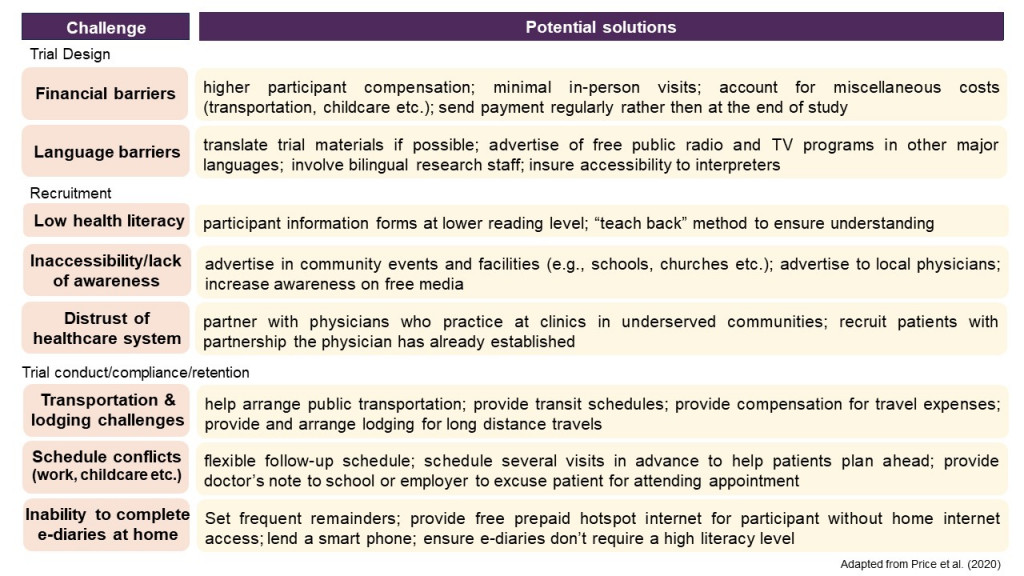How to include socioeconomically disadvantaged people in trials
Also see the NIHR INCLUDE Socioeconomic Disadvantage Framework.
Socioeconomic status is a measure of an individual’s social standing, determined by a combination of factors such as education, income, and occupation. People who are socioeconomically disadvantaged experience less favourable social and economic conditions compared to the majority in their society. This disadvantage is multifaceted and can evolve over time, as one’s socioeconomic status is not fixed throughout their life. Various life events can influence and alter an individual’s socioeconomic standing.
Socioeconomic factors can significantly influence health outcomes, treatment responses, and access to healthcare services. Including individuals from diverse socioeconomic backgrounds in clinical trials can help identify potential disparities in treatment efficacy and ensure that interventions are effective and relevant for all. Data, insights and analysis exploring the socioeconomic drivers of health inequalities can be found in the Health Foundation’s Evidence hub.
There are many factors that influence the ability to participate in clinical trials for socioeconomically disadvantaged people, including but not limited to financial barriers, inaccessibility of trials, distrust of the healthcare system, transportation and lodging challenges, and inability to attend visits due to schedule conflicts. These can be address in different ways such as providing patient compensation, creating simpler participant information forms, helping arrange transportation, providing a flexible schedule etc. A table of challenges and potential solutions can be found in a paper by Price et al.: Facilitating Clinical Trials Participation of Low Socioeconomic Status Patients. A short summary of the table can be seen in the image below.


